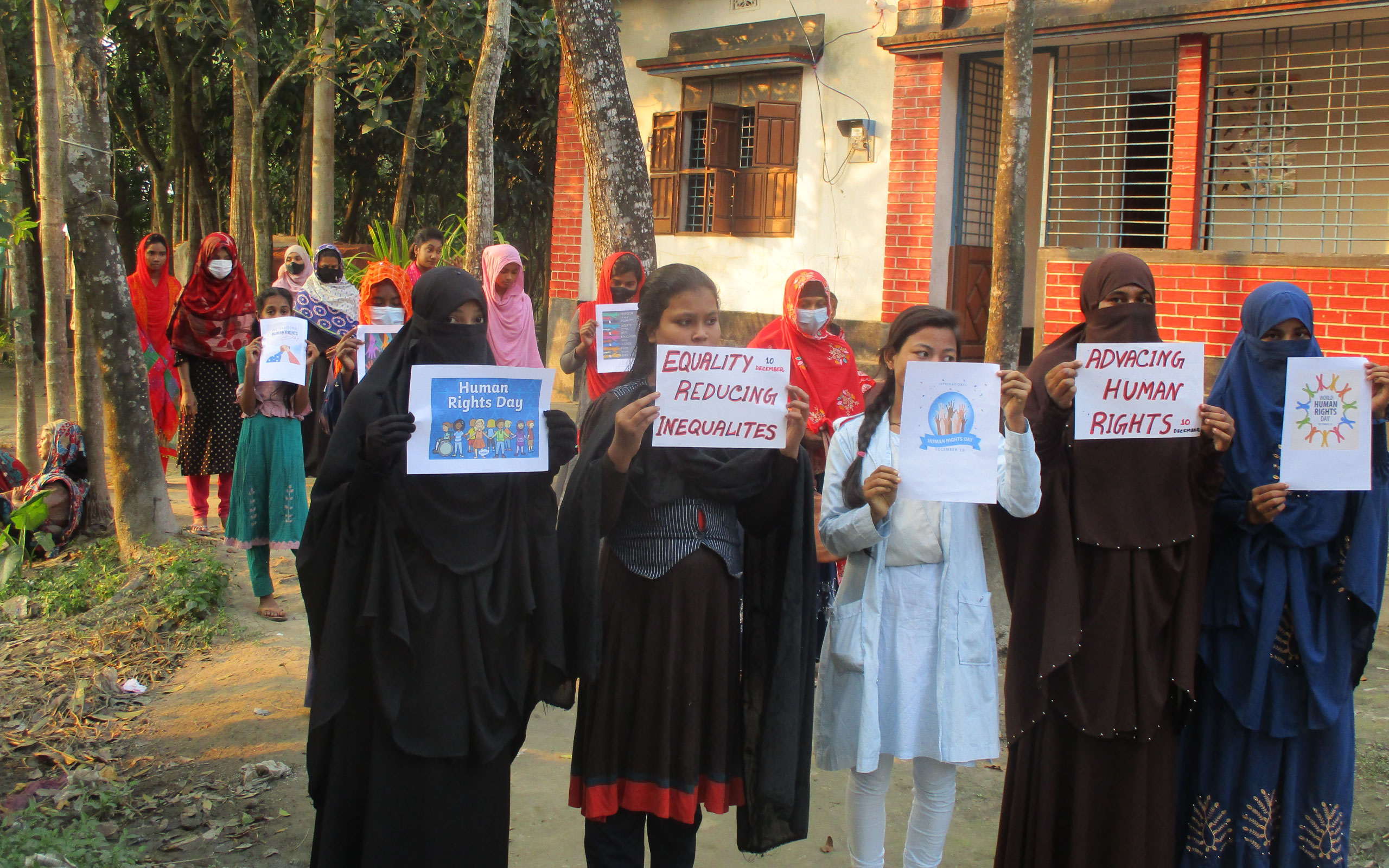
by Ms Frances J. Ferreira
Acting Director: Skills
The theme for the 10-year anniversary of the day of the Girl Child is, “Our time, our rights, our future.” This theme depicts an urgency, it shows determination, and it is a call to action. The girl child has become a focus of attention the past ten years and evidence suggests that their education contributes to their economic empowerment which in turn contributes to gender equality, poverty eradication and inclusive economic growth (UNWOMEN, 2013).
Empowerment as defined by Kabeer is the “the expansion in people’s ability to make strategic life choices in a context where this ability was previously denied to them.” (Kabeer, 2002). At the heart of empowerment is education as it provides the learner with the skills and knowledge to change their lives.
As we celebrate the International Day of the Girl Child it is disheartening to note that the proportion of adolescent girls and young women that are Not in Education, Employment, or Training (NEET) is twice as high for female youth in many low middle income countries (LMICs). In sub-Saharan Africa, NEET is 24% among adolescent girls and young women (aged 15 to 29) and 13% among males (GenderSmart, 2020).
More disturbing is the news from Afghanistan where girls were excited to see their teachers and friends in March this year, just to be told that the schools will not reopen for them. While many Afghan girls are despondent and may have lost hope, 25 year old Zainab Muhammadi is resilient and remain hopeful. She said “But I have not lost hope or my aspirations. I am determined to continue studying.” (Aljezeera, 2022).
What must change?
To empower the girl child, gender norms that prevent them from accessing education and employment, limiting their freedom of choice in age at first marriage and in sexual and reproductive health/rights, exposing them to violence and restricting their political participation must be challenged and transformed.
What can we do to ensure that girls enjoy their rights and have a voice to determine their future?
The Commonwealth of Learning (COL) has adopted an intentional strategy using three pathways to economic empowerment of women and girls with its GIRLS Inspire initiative. The project employs an innovative, holistic partnership framework in which women and girls, men and boys, entire communities and policymakers are active stakeholders in promoting women’s and girls’ empowerment.
In its first pathway to women’s empowerment, COL engages the community and family through concentrated activities to address issues at the root of gender inequality, such as pervasive social norms and prohibitive social, legal and political structures. By addressing these gender inequalities and rights’ violations, COL influences the changes directed at human dignity of women and girls with or without disability and thus contribute to the realisation of their empowerment.
Furthermore, COL builds the capacity of girls to understand their human rights through various training interventions, thereby allowing them to make their voices known against the dominant social norms that perpetuate gender inequality and gender-based violence. COL works with schoolboards, community leaders, parents and government officials to reduce gender disparity in terms of participation in education and learning attainment. COL and its implementing partners work with local governments, national open schools and communities to reintegrate girls with or without disabilities into schools and open schooling centres.
The second pathway to economic empowerment addresses women’s and girls’ access to and control over economic opportunities including access to institutional credit, differential wages for similar jobs and violence at the workplace. COL works with partner organisations to increase women‘s and girls’ knowledge and vocational skills and improve their awareness on mitigation and reduction of climate-related hazards and natural disasters. This provides them with the skills and the ability to make strategic life choices and the capacity to exercise their freedom of choice in employment.
The third pathway to women and girls’ economic empowerment is to mobilise local businesses and financial institutions to invest in women and girl’s empowerment by providing them with employment and internships. The ability of the local labour market to absorb the women and girls trained is important, and therefore COL works with its local partners to show local business owners the benefits to their productivity and-or profits by employing women and girls within a win-win framework for all.
Reflecting on the International Day of the Girl Child reminds us that we can no longer postpone our work to ensure that the girl child enjoys the same freedoms and rights as the boy child. We must work as a collective to ensure that they enjoy equal rights and have the ability to take their rightful place in the society as educated, employed and empowered human beings.
Happy International Day of the Girl Child!


